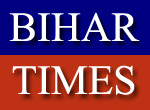New Delhi, Oct 24 (IANS) The Supreme Court Thursday awarded Rs.6,08,00,550 compensation to Indian-American doctor Kunal Saha, ordering the Kolkata-based Advance Medicare Research Institute (AMRI) to pay for medical negligence resulting in his wife Anuradha's death in 1988.

A bench of Justice C.K. Prasad and Justice V. Gopala Gowda passed the order in their judgment on an appeal by Saha, challenging the compensation of Rs.1.72 crore awarded by National Consumer Forum. Cross appeals were also filed by AMRI and three doctors against the forum's award.
Welcoming the verdict, Saha said the "historic" judgement should rekindle hope for countless victims.
The US-based NRI said it should tell many honest and caring doctors it is time to step forward and cleanse the system.
"If you let a few corrupt and politically connected doctors to run the show, all doctors will continue to share the blame and will never be able to restore public trust that we had not so long ago," he said in a statement.
The court directed that the hospital would pay compensation to Saha, within eight weeks, along with yearly interest of 6 percent from the date of the complaint. Allowing AMRI to deduct what it had already paid, the court also asked to file a compliance report.
It asked two doctors - Balram Prakash and Sukamar Mukharjee - to pay Saha Rs.10 lakh each and another doctor, Baidyanath Haldar, to pay Rs.5 lakh.
Since three doctors, after the consumer forum decision, had already made payment in excess of one fixed by the apex court, the court said that they are entitled for reimbursement from AMRI, which should do so within eight weeks.
The court took several factors into account in fixing the compensation, over the forum's Rs.1,34,66,000.
Noting an increasing number of medical negligence cases coming before the consumer forums, the court said it hopes this verdict "acts as a deterrent and a reminder to those doctors, hospitals, the nursing homes and other connected establishments who do not take their responsibility seriously".
Speaking for the bench, Justice Gowda asked the central and the state governments to consider enacting laws wherever needed for effective functioning of private hospitals and nursing homes."
Citing an earlier apex court judgment holding the right to health a fundamental right guaranteed under the Constitution's Article 21, the court said doctors and hospitals are to be dealt with strictly if found "negligent with the patients who come to them pawning all their money with the hope to live a better life with dignity".
"The patients irrespective of their social, cultural and economic background are entitled to be treated with dignity which not only forms their fundamental right but also their human right," Justice Gowda said.
Since the conduct of doctors is already regulated by the Medical Council of India, the court said: "We hope and trust for impartial and strict scrutiny from the body.
It also expressed hope that medical professionals and institutions update themselves about any new developments and rare diseases so as to avoid tragedies such as this case where a life could have been saved with a little more awareness and wisdom on the part of doctors and the hospital.
The tragic story of Anuradha started in April 1998, a month after she reached Kolkata for her summer vacation, when some rashes surfaced on her skin. She consulted Mukharjee who advised her rest.
However, more intense rashes recurred in early May. Mukharjee then prescribed her two doses of Depomedrol injection every day.
As Anuradha's condition did not improve, she was admitted to AMRI and treated by Mukharjee but subsequently shifted to Mumbai's Breach Candy Hospital where she was diagnosed to be suffering from life-threatening disease called toxic epidermal necrolysis (TEN).
TEN, also known as Lyell's syndrome, is generally caused by a reaction to drugs and leads to the top layer of skin detaching from the lower layer all over the body.
Anuradha succumbed to her ailment May 28, 1998.
|


